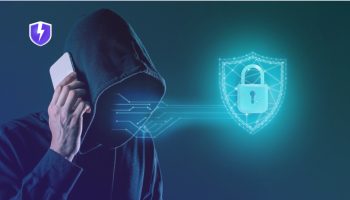Have you ever questioned how secure your data is when it is online? Quantum computing, therefore, might need that we do a serious overall on how we protect data. These new paradigms of computation are strong enough to break the backbone of classical encryption schemes that protect our sensitive information. This blog, therefore, will touch on the evolving quantum threats, ways VPNs are changing to respond to them, and a bit of the new post-quantum cryptography.
What is Quantum Computing?
According to the principles of quantum mechanics, quantum computers process information fundamentally differently from classical computers. Unlike classical computers, in which bits are represented by 0s and 1s through binary states, qubits make the use of superposition and can therefore hold both a 0 and 1 at the same time. In this way, quantum computers can solve relatively complex problems in times markedly shorter than today’s classical computers. As an illustration, a quantum computer developed at Google in 2019 solved a computation in just over three minutes that would take the world’s fastest supercomputer 10,000 years.
The threat of quantum computers to current encryption Today’s encryption methods, such as RSA and ECC, rely on the difficulty of factoring large prime numbers or solving discrete logarithm problems. Quantum computers can solve these problems with algorithms like Shor’s within just a small part of the time taken today, resulting in the obsoletion of current methods of encryption. This would threaten sensitive data, which includes financial information, personal communications, and national security data.
What VPNs Have to Do With Data Security?
A VPN encrypts your connection to the Internet to protect your online activities. VPNs work on the use of existing cryptographic algorithms that secure transmitted data through protocols such as OpenVPN and IPsec; in comparison, modern quantum computing threatens to break these current security models assured by VPN services. Therefore, VPN providers are starting to move toward post-quantum cryptographic methods to make sure their service is guaranteed for the future.
Post-Quantum Cryptography
Post-quantum cryptography, or PQC, is a term used for cryptographic algorithms believed to be secure in the presence of large quantum computers. Several organizations, including NIST, have been working toward standardization of these algorithms. In 2024, NIST is expected to release four post-quantum cryptographic algorithms to protect data against future quantum attacks. They include some new algorithms based on the lattice problems; problems that are considered to be generally hard for quantum computers. Companies like Google and Apple are already testing and starting to implement these new cryptographic protocols for the purpose of protecting their communications and data. For instance, Google has started incorporating post-quantum cryptographic algorithms into its Chrome browser.
As companies start preparing for a quantum future, the hoped-for shift to quantum-resistant cybersecurity is at best complicated and costly. Companies will be required to:
- Access Their Cryptographic Deployment: They are to assess how systems within their organization make use of cryptographic techniques and where they are employed.
- Develop Migration Plan: This will entail the estimated time frame of adopting postquantum cryptographic standards.
- Invest in New Technologies: Budgets allocated for the development and deployment of quantum-resistant technologies.
- Monitoring Evolving Standards: Being aware of the latest developments in post-quantum cryptography and adopting the same in security protocols.
Countries are also taking legislative steps to prepare for the quantum era. Legislation in the US, such as the Quantum Computing Cybersecurity Preparedness Act of 2022, requires government agencies to start using post-quantum cryptography and encourage the private sector to do so.
Importance of Immediate Action
Though fully operational quantum computers are still several years away, their “harvest now, decrypt later” strategy implies that cybercriminals can start collecting encrypted data today with the hope of decrypting it in the future when quantum computers will already be a reality. This has called for immediate need of switching to cryptographic algorithms for such organizations.
Conclusion
The rise of quantum computing provides a real threat to current encryption methods but is at the same time an opportunity to harden our infrastructure for cybersecurity. We have the opportunity to protect our data against these emerging threats by adopting post-quantum cryptography and preparing for the quantum future. Already in an evolutionary phase, VPNs and other security technologies will manage to take up the challenge where computational powers will become higher than anything experienced in these digital worlds. All the time, during this transition phase, it is vital that we know about the latest quantum developments which could possibly impact cryptography and proactively try to take frontline measures to secure our data from future emerging threats. The sooner we start preparing, the better protected we will be when the quantum era fully arrives.


